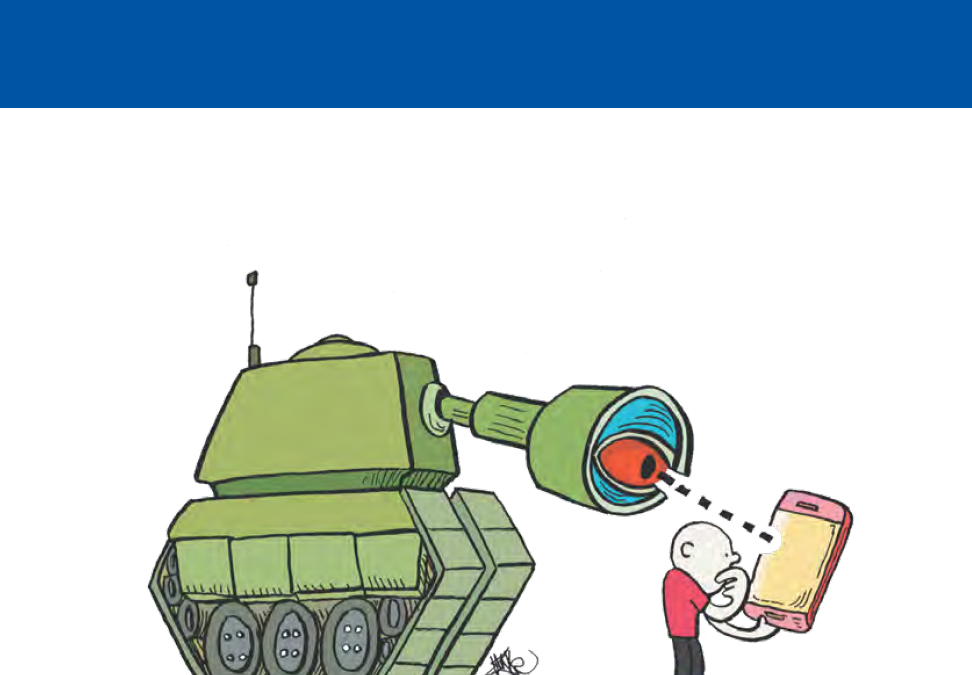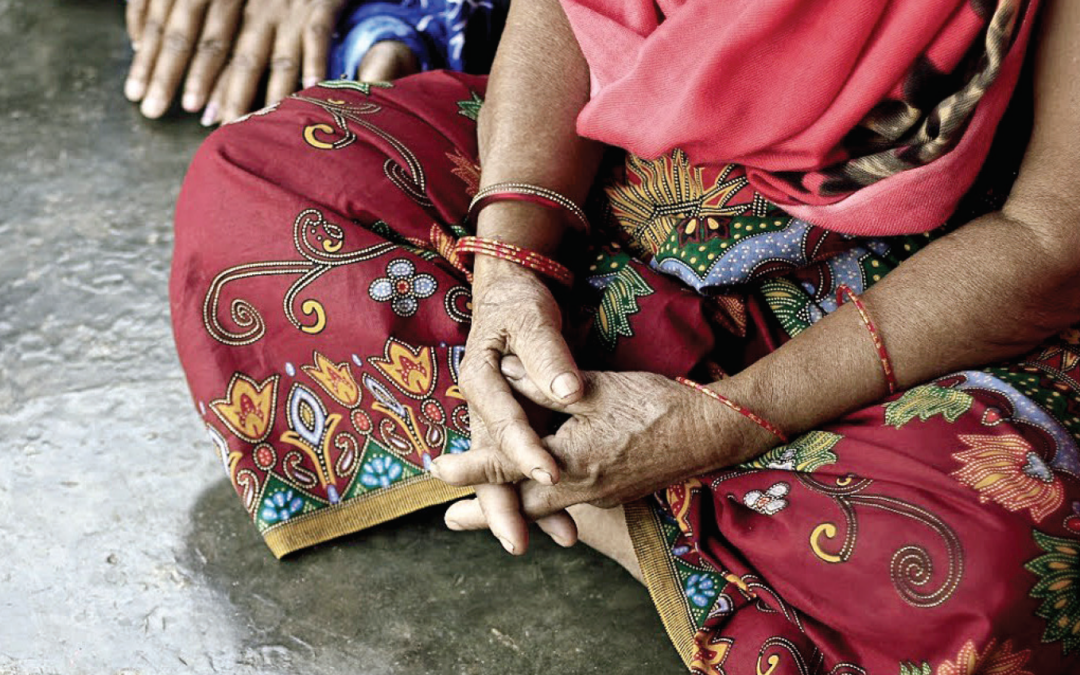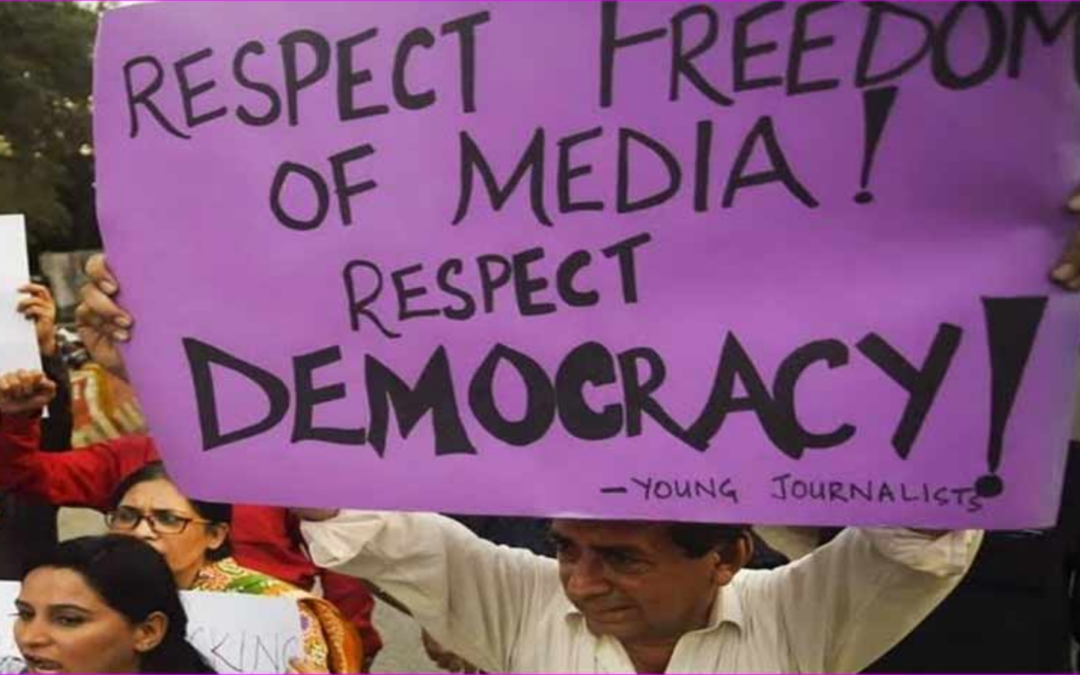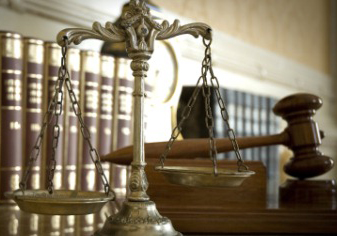
Jun 22, 2021 | News, Publications
The Thai authorities should immediately reform laws, policies and practices that have led to increasing violations of human rights in the digital sphere, the ICJ said in a new report launched today.
The 75-page report, Dictating the Internet: Curtailing Free Expression and Information Online in Thailand, documents a range of laws that does not comply with international human rights law and standards. These laws contain vague and overbroad provisions, wrongly criminalize free expression or prescribe disproportionately harsh penalties, and are applied without independent oversight mechanisms.
These arbitrary restrictions have intensified in response to the COVID-19 pandemic and pro-democracy protests.
“The Thai authorities have continued their systematic abuse of existing and new deficient laws to curtail not only the right to freedom of expression, opinion and information online, but also the rights to peaceful assembly, health and other rights,” said Sam Zarifi, ICJ’s Secretary General.
The Thai authorities have also pressured and co-opted big technological companies to improperly restrict or block content on their platforms, through court-enforced demands and the filing of criminal complaints for failing to comply.
The report further documents how the Thai authorities have failed to adequately protect individuals against the human rights abuses of private actors, who include companies harassing its critics through legal processes and perpetrators of online speech inciting discrimination, hostility or violence.
The report provides specific recommendations to the Thai authorities and technological companies in the communications sector to safeguard in law and practice the rights to expression, opinion and information online as well as offline. These recommendations call for the authorities to, among other recommendations:
- Repeal or substantially amend criminal law provisions that criminalize or unduly restrict human rights online, and review existing laws or develop legislation to protect against SLAPP lawsuits and the incitement of discrimination, hostility or violence;
- Cease harassment and persecution of all individuals for merely exercising their human rights online;
- Refrain from future charges and drop all existing charges against individuals and social media companies facing prosecution for alleged violations of non-human rights compliant laws, and immediately release all held in pre-trial detention or imprisoned on conviction for such cases; and
- Refrain from restricting or blocking online content unless the decision to block has been undertaken following a full analysis applying international human rights law and standards, and authorized pursuant to an order by an independent and impartial judicial authority.
“The Thai authorities must act urgently to stem this deteriorating trend of human rights violations and abuses in the digital space, by repealing or substantially amending its laws, policies and practices in line with Thailand’s international legal obligations,” added Zarifi.
The report follows on from the ICJ’s December 2019 regional report entitled Dictating the Internet: Curtailing Free Expression, Opinion and Information Online in Southeast Asia assessing non-human rights compliant legal frameworks and case studies across Southeast Asia, including Thailand.
Report Launch
The report will be launched on 22 June 2021. The launch includes a panel discussion, which draws together human rights defenders, diplomats, journalists, lawyers and civil society to discuss the increasing attacks on freedom of expression and information online in Thailand through non-human rights compliant laws and practices.
The discussion will include as panelists:
- Sam Zarifi, Secretary General, International Commission of Jurists;
- Poonsuk Poonsukcharoen, Thai Lawyers for Human Rights (TLHR); and
- Chavarong Limpattamapanee, Chairman, National Press Council, Thailand.
Download
The full report is available in English here and in Thai here. The executive summary of the report is available in English and Thai. (PDF)
Contact
Sam Zarifi, ICJ Secretary General, e: asiapacific@icj.org, t: +66-62-702-6369
See also
ICJ, ‘Southeast Asia: ICJ launches report on increasing restrictions on online speech’, 11 December 2019
ICJ, ‘Vietnam: authorities must act to safeguard rights online and end harassment of those expressing themselves – ICJ new report’, 9 December 2020

Jun 21, 2021 | Advocacy, News
Victims of sexual and gender-based violence during Nepal’s 10-year-long civil war still face major obstacles to justice, concluded the participants of a virtual consultation on 19 June 2021, on the occasion of the International Day for the Elimination of Sexual Violence in conflict.
The consultation was organized by the International Commission of Jurists (ICJ), in collaboration with the Conflict Victim Women National Network (CVWN), to address “Enhancing Access to Justice for Survivors of Conflict-Related Sexual Violence”. The Nepali version of ICJ Briefing Paper on “Nepal: Transitional Justice Mechanisms with Gender Perspective” was also launched as part of the consultation.
The ICJ consultation with stakeholders highlighted Nepal’s obligation under international law to ensure right to an effective remedy to the victims of sexual and gender-based violence of Nepal’s decade-long armed conflict, which came to a close with a peace accord in 2006.
Around 80 participants, including human rights defenders and conflict victims from different parts of the country attended the consultation. The participants expressed particular concern at lack of attention to gender issues in the context of Nepal’s transitional justice process since its very beginning, and urged that gender considerations be mainstreamed in the transitional justice process.
Ms. Shrijana Shrestha, Chairperson of the CVWN, underscored the lack of government data on victims of conflict-related sexual violence, and denounced the hurdles victims face in seeking justice, due to social and cultural taboos, lack of a support system, and the current statute of limitation to register complaints of sexual violence.
Ms. Mandira Sharma, ICJ Senior Legal Adviser, highlighted that, as a party to various international human rights instruments, Nepal has an obligation to ensure victims’ right to an effective remedy. Further, she expressed concern about the lack of political will since the beginning of the peace process to address the needs of women victims, in particular of victims of conflict-related sexual violence. She emphasized the need to amend the Truth and Reconciliation (TRC) Act in consultation with victims of the armed conflict.
Similarly, Dr. Susan Risal, human rights activists, emphasized the need to develop strong strategies to deal with conflict-related sexual violence in Nepal, taking into consideration the best practices of different countries.
Ms. Laxmi Pokharel, ICJ Legal Adviser, pointed out that the ICJ Briefing paper (“Nepal: Transitional Justice Mechanisms with Gender Perspective”) has analyzed the TRC legislation comprehensively, and can therefore be of use as a powerful advocacy tool for legal reform. She summarized the main findings of the briefing paper and its recommendations, including:
- Amend the TRC Act, through consultative and participatory process, in line with the Supreme Court’s order and Nepal’s international obligations;
- Ensure the participation of women in both Commissions (i.e., the Truth and Reconciliation Commission and the Commission on Investigation of Disappeared Person) at all levels of staffing and in the appointment of Commissioners with a view to ultimately achieving gender parity;
- Provide gender-sensitive training to the Commissioners and staff of the Commissions in order to enhance their ability to address gender issues in their operation;
- Amend the Criminal Code to remove the statutory limitation for filing complaints of rape and other instances of sexual violence;
- Ensure that amnesties and mediation will not be granted to perpetrators of gross human rights violations, including rape and other forms of sexual violence.
During the discussions, the participants highlighted the following major concerns:
- Despite more than six years of its establishment, the Truth and Reconciliation Commission (TRC) and the Commission on Investigation of Disappeared Person (CIDP) have failed to ensure victims’ right to truth, justice, reparation and guarantee of non-repetition;
- There is an urgent need to identify victims of conflict-related sexual violence and provide them with support in order to address their immediate needs;
- The TRC Act needs to be amended in consultation and with the participation of all main stakeholders;
- The existing statute of limitation to file complaints of rape and other forms of sexual violence is a major barrier for victims of conflict-related sexual violence, and must be amended so that victims can access justice.
The event was organized under the ‘Enhancing Access to Justice for Women in Asia and the Pacific’ project funded by the Swedish International Development Cooperation Agency (SIDA). Due to the COVID–19 pandemic, the webinar was conducted virtually via Zoom and broadcasted live on Facebook. The webinar was conducted in Nepali with simultaneous English translation.
Contact
Laxmi Pokharel, ICJ Legal Adviser – Nepal, e: laxmi.pokharel(a)icj.org
Download
Briefing paper on “Nepal: Transitional Justice Mechanisms with Gender Perspective” in English and Nepali.

Jun 3, 2021 | News, Uncategorized
A recent series of attacks and growing pressure on journalists who criticize the Pakistan government is a cause for serious concern, Human Rights Watch, Amnesty International and the ICJ said today. Those suspected of criminal responsibility should be promptly and fairly prosecuted.
The Pakistan government should conduct prompt, impartial and effective investigations into the recent number of attacks on journalists. The government should rescind official policies that protect the authorities from criticism and instead promote space for public debate and free expression, in the face of threats from extremist groups and government officials.
“The frequency and audacity with which journalists are being attacked in Pakistan is appalling,” said Brad Adams, Asia director at Human Rights Watch. “The Pakistani authorities should bring those responsible for these attacks to justice and ensure that all journalists can do their jobs without fear of intimidation or reprisals.”
On May 25, 2021, Asad Ali Toor, a journalist, was assaulted by three unidentified men who forcibly entered his apartment in Islamabad. They bound and gagged Toor and severely beat him. Toor said that they identified themselves as being from a security agency, interrogated him about the “source of his funds,” and took away his cell phone and other electronic devices. The government ordered an investigation into the incident. In September 2020, the authorities charged Toor with sedition for comments made on social media “maligning state institutions.” A court later dismissed the charges.
On April 20, an unidentified assailant shot and wounded Absar Alam, a television journalist, outside his house in Islamabad. Alam has been a prominent critic of the government. In September 2020, the authorities charged Alam with sedition and “high treason” for using “derogatory language” about the government on social media.
On July 21, 2020, an unidentified assailant abducted another journalist, Matiullah Jan, in Islamabad the day before he was to appear before the Supreme Court for allegedly “using derogatory/contemptuous language and maligning the institution of judiciary.” Jan was released after a few hours. He alleged the abduction was an attempt to intimidate him. A criminal case was registered for Jan’s abduction, but, no suspects have been arrested.
“It is disturbing to see the space for dissent and providing information of public importance rapidly shrink in Pakistan, with journalists as well as human rights defenders particularly at risk of censorship, physical violence, and arbitrary detention,” said Sam Zarifi, secretary general of the ICJ.
Pakistani journalists have long faced serious obstacles to their work, including harassment, intimidation, assault, arbitrary arrest and detention, abduction, and death. As these threats have escalated, Pakistani authorities have also increasingly pressured editors and media owners to shut down critical voices. On May 29, the news channel, Geo, “suspended” Hamid Mir, one of Pakistan’s best-known television talk show hosts, after Mir spoke at a protest in solidarity with Asad Toor.
Other media outlets have come under pressure from authorities not to criticize government institutions or the judiciary. In several cases in recent years, government regulatory agencies blocked cable operators and television channels that had aired critical programs. In 2020, Pakistan ranked ninth on the Committee to Protect Journalist’s annual Global Impunity Index, with at least 15 unsolved killings of journalist since 2010.
In July 2020, the Pakistan Electronic Media Regulatory Authority (PEMRA) ordered 24NewsHD, a television news channel, off the air indefinitely for the alleged “illegal transmission of news and current affairs content.” Journalists and opposition activists alleged that the channel was being punished for airing criticism of the government.
In August 2020, a group of leading women journalists issued a statement condemning a “well-defined and coordinated campaign” of social media attacks, including death and rape threats against women journalists and commentators whose reporting has been critical of the government.
“If the authorities are committed to uphold their human rights obligations, they must take decisive steps against censorship, harassment and violence against journalists,” said Dinushika Dissanayake, South Asia deputy regional director at Amnesty International. “For that, continued impunity must be dismantled.”
Contact
In Brussels, for Human Rights Watch, Patricia Gossman: +32-472-982-925; or +1-347-322-8638 (WhatsApp); or gossmap@hrw.org. Twitter: @pagossman
In Geneva, for the International Commission of Jurists, ICJ Asia-Pacific Communications Officer, asiapacific(a)icj.org
In London, for Amnesty International, Michael Parsons: michael.parsons@amnesty.org







